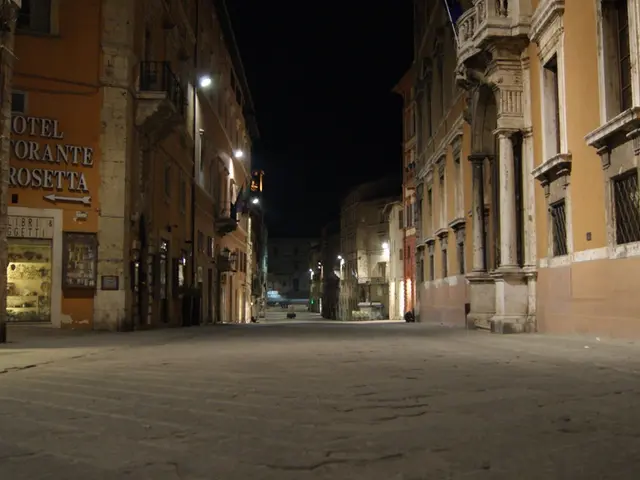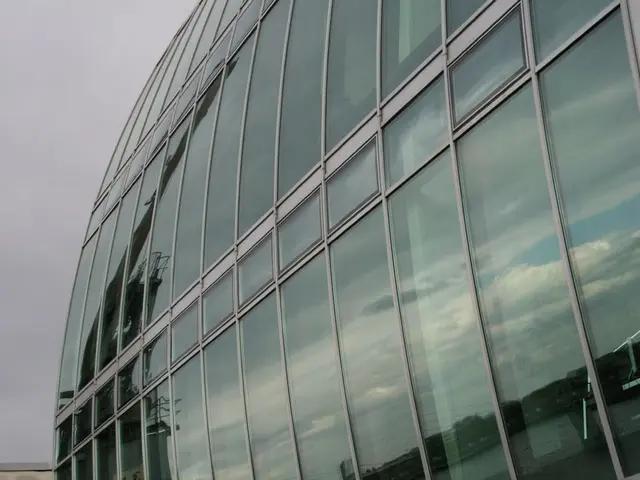Mediterranean East Nations Form Gas Cooperative
Let's Get This Gas Party Started!
Seven countries, including Egypt, Israel, Cyprus, Greece, Italy, Jordan, and the Palestinian Authority, have teamed up to form the Eastern Mediterranean Gas Forum (EMGF) this week. The excitement surrounds the region's energy-rich natural gas resources. Headquartered in Cairo, the EMGF aims to foster a regional gas market, cut infrastructure costs, and offer competitive prices, according to Egypt's Ministry of Petroleum.
The EMGF is all about cooperation among producers, consumers, and transitory parties in the region, leveraging existing infrastructure and developing new options to accommodate current and future discoveries. Egypt, strategically situated on both sides of the Suez Canal and boasting well-developed infrastructure, aspires to become a hub for trading and distributing gas in the region and beyond.
Fun fact: The Karish gas field, operated by Chevron, has been pumping gas since 2022, and the Azerbaijani oil and gas company SOCAR recently grabbed a 10% stake. Egypt and Cyprus also shook hands on a plan to let the latter export gas via Egyptian LNG infrastructure, which could be a game-changer!
Oh, and did you know that Egypt and Israel have been playing a game of reverse pipeline flows since 2022, allowing Israeli gas to get liquefied in Egypt before being sent to Europe? But here's the twist – Egypt's domestic summer demand limits the LNG plant's full potential. No worries, though; the EMGF is on a mission to reduce emissions, and it even launched EmpowerMed Women to promote gender equality in the energy sector!
Zooming out a bit, the EMGF's LNG exports provide an alternate source of gas to Russia, particularly during peak European demands. However, the infrastructure's scalability and Egypt's domestic consumption constraints pose some challenges. EMGF Secretary General Osama Mobarez has been busy making diplomatic moves, appearing in Washington, D.C. to advocate for energy diplomacy and enhance regional trust. The forum's focus on shared infrastructure resonates well with the EU's diversification goals.
Now, let's talk about Iran. While the EMGF is all about Mediterranean gas integration, Iran is plotting a "Gas Peace Corridor" that could link South Pars to Europe via Iraq and Syria. This move could help stabilize conflict zones but might escalate tensions with Russia, potentially leading to deepened ties between Moscow and Tehran. Turkey, on the other hand, could find itself in a sweet spot as an energy transit hub, bridging EMGF-linked projects and Middle Eastern pipelines. However, the competing initiatives create a diplomatic mess!
In conclusion, the EMGF is all about strengthening regional partnerships and resolving infrastructure bottlenecks to balance EU energy needs with local demand. Iran's gas diplomacy presents both opportunities for stability and escalating great-power competition. Keep your eyes peeled for more developments in this exciting gas saga!
- The Eastern Mediterranean Gas Forum (EMGF), including Egypt, Israel, and other partners, aims to establish a regional gas market and reduce costs through cooperation.
- Egypt, situated on both sides of the Suez Canal, aspires to become a hub for gas trading and distribution in the region.
- The EMGF's focus includes leveraging existing infrastructure and developing new options to accommodate gas discoveries.
- Egypt and Cyprus have agreed to allow Cyprus to export gas via Egyptian LNG infrastructure, which could significantly impact the region's energy landscape.
- Egypt and Israel have implemented reverse pipeline flows since 2022, sending Israeli gas to Europe for liquefaction.
- The EMGF's LNG exports can serve as an alternate source of gas to Russia during European peak demands, but infrastructure scalability and Egypt's domestic consumption constraints pose challenges.
- Iran, not part of the EMGF, is planning a "Gas Peace Corridor" that could link South Pars to Europe, potentially causing tensions with Russia and deepening ties between Moscow and Tehran.
- Turkey could benefit as an energy transit hub, bridging EMGF-linked projects and Middle Eastern pipelines, but the competing initiatives create a diplomatic mess in the regional energy sector.








